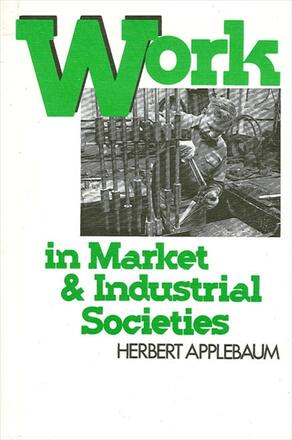
Work in Market and Industrial Societies
Alternative formats available from:
Description
It's a living! That fact, no one can deny. Yet the significance of work—productive activity which alters the physical environment to meet human needs—goes far beyond the paycheck. Work involves, among other things, embracing a set of roles and beliefs, mastering skills and knowledge, and behaving in ways considered appropriate for the achievement of a desired level of productivity and quality.
This book is an informative and highly readable global survey of the various aspects of work in market and industrial societies. Its extensive general introduction and the seven section introductions discuss the role of work in society and the problems and satisfactions associated with working. The book's eighteen chapters, written by well-known specialists, spotlight characteristics which give each occupation its distinctive cultural identification. Featured in this compendium of work and working are factory workers, white collar employees, construction personnel, farmers and migrant workers, miners, railroaders, longshoremen, sanitation workers, firefighters, and fishermen.
Herbert Applebaum is the editor of Work in Non-Market and Transitional Societies, also published by the SUNY Press. Dr. Applebaum also edits the Anthropology of Work Review. Among his previous publications is the highly acclaimed Royal Blue: The Culture of Construction Workers.